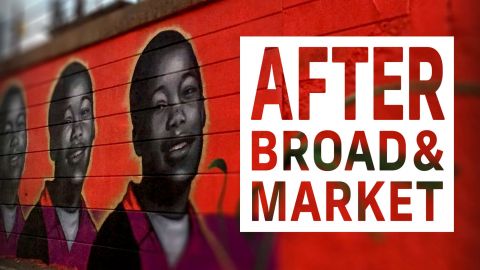new jersey's homeless population is
growing but
two communities in our state have come
up with
innovative housing solutions to help
those residents
newark recently began sheltering
homeless people
in converted shipping containers and now
bridgeton is moving forward with a plan
to build
tiny homes as melissa rose cooper
reports tonight for our
ongoing series chasing the dream which
focuses on
poverty justice and economic
opportunities
these new alternatives to traditional
homeless shelters
are helping residents get back on their
feet
number one thing is security from the
elements
the goal is i want them to be proud that
they're making
steps every day to a permanency
bridgeton mayor albert kelly discussing
his hope
once this vacant lot is transformed into
a brand new complex
aimed at improving the lives of the
city's most vulnerable
we have received approval from
richardson city council
and the local planning board to build a
tiny home village
here in the city of bristol it's going
to be named gateway
tiny home village in which we're going
to house
the chronic homeless here in our
community
the project is an initiative of gateway
communication action partnership
which the mayor also heads the economy
has not been kind to a lot of
individuals and a lot of families but
we've we've found that
most of the people if not all of the
people
we're going to be talking to have
mental health and substance abuse
problems
so we need to work with those
individuals so that they're no longer
sleeping in plain sight the plan is to
place six 100 square foot units on this
lot
that will include fold-up beds shelving
and electricity
as well as climate-controlled heat and
air conditioning systems
separate units will house bathroom and
kitchen facilities in the center
area we may be able to put three
large tables just in case we still wind
up with the social distancing thing
nice umbrellas benches and we'll have
social service
come in maybe for one or two hours a day
so they can get their driver's license
they can get their social security cards
it's the things that are holding them up
from moving forward into getting into
permanent housing
similar projects in the state already
seeing the positive benefits
in march newark opened this housing
facility for the homeless
known as hope village the site provides
shelter for up to 24 people using
shipping containers
that have been converted into cold
compliant living spaces complete with
beds
storage and private showers we've been
able to get
more than eight individuals employment
we've gotten people
three people intensive outpatient
substance abuse
we've gotten five individuals enrolled
into mental health services
and there are about 16 individuals that
are in the process of transitioning
into their own apartments i think it's
tremendous idea what
bridgeton is doing and what the city of
newark has done previously
is looking at a model that's been used
in seattle
los angeles according to a report from
the u.s department of housing and urban
development
there were over 9 600 people considered
to be homeless in new jersey in 2020.
that number of 9 from the year before
where there were
about 8 800. advocates say the state
could benefit from more housing
initiatives to get people off the
streets
this is giving them a place to be able
to go to be able to
get all the attention that they need to
address their problems whether it's
drug addiction help them prepare to get
employed
help them prepare to be able to get a
home as of right now construction is
expected to start in september with the
goal to give residents keys to their
brand new homes
before the cold weather comes we need
something year-round in which we can
house the homeless but most importantly
work with them through our social
services
through our local health clinics
so that we can transition them from
these
units to permanent houses and make them
a productive member of our society
and i want them to be proud of
themselves a sense of pride officials
say they can't wait to see
for nj spotlight news i'm melissa rose
cooper
major funding for chasing the dream is
provided by
the jpb foundation with additional
funding from the peter g
peterson and joan ganz cooney fund



